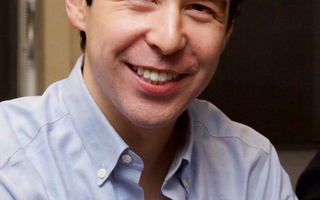Roger D. Fisher ’43, a Harvard Law School professor emeritus known for his innovative work in the field of peaceful conflict resolution and his best-selling book “Getting to Yes: Negotiation and Agreement Without Giving In,” died in Hanover, N.H. on Saturday, Aug. 25.
Fisher—who worked on some of the twentieth century’s most important international conflicts, from the Middle East to South Africa—died due to complications of dementia, according to the New York Times. He was 90.
“Roger really broadened and populated and crystallized the notion of win-win negotiation, and substituted it from ‘dividing the pie’ or ‘win-lose’ negotiation,” said Harvard Business School professor James K. Sebenius, Fisher’s successor as director of the Harvard Negotiation Project.
Fisher graduated from Harvard Law School in 1948 and taught at the school for more than three decades until his retirement in 1992.
Jamil Mahuad, a former president of Ecuador who was a fellow at the Institute of Politics after being ousted in a military coup, took a class from Fisher while a student at the Kennedy School in the 1980s. When Mahuad was president of Ecuador and facing “imminent war” with Peru, he called Fisher to coach him through negotiations.
Mahuad said that Fisher emphasized, “If you want peace, you have to talk with the other side.”
“I couldn’t get a better adviser,” he added.
From the border dispute between Ecuador and Peru to the Vietnam War, Fisher advised leaders and shaped negotiations across the globe. He created the template that would unite Egyptians and Israelis at Camp David in 1978, helped shape the agenda for the Reagan-Gorbachev summits, and held workshops to train South African officials on negotiation during the early 1990s.
Peter R. Fisher ’80, Fisher’s son, said that his father became involved in many discussions—from these international diplomacy issues to personal disputes—by effectively inserting himself into conversations.
“He would just call people up or write them a letter,” Peter said. “His friends said he was the epitome of chutzpah.”
Fisher’s advocacy for peace and resolution was fueled by his first-hand experience during World War II, according to friends.
“He was involved in a lot of the weather reconnaissance flights over Japan,” said his son, Elliott S. Fisher ’74. “The first morning solo flight was the weather reconnaissance flight. I remember hearing him talk about learning after the war that the residents of Hiroshima had learned to ignore the first solo air raid siren.”
The first plane over Hiroshima on Aug. 6, 1945, dropped an atomic bomb that killed 80,000 people on impact.
“He felt somewhat responsible for the extra deaths that happened in Hiroshima,” Elliott said.
Fisher lost 33 members of his graduating class on the battlefields, including his roommate and two close friends.
Read more in News
Students Accused in Cheating Scandal Frustrated by Uncertain ProcessRecommended Articles
-
Prohibition Team.An intercollegiate prohibition team has been formed with one representative each from Harvard, Tufts, Newton Theological School, and Boston University.
-
University Calendar.OCTOBER 28. SUNDAY.Appleton Chapel, 7.30 p. m., Rev. George F. Fisher, D. D., of Yale University. The front pews will
-
HMS Professor C. Miller Fisher Dies at 98Harvard Medical School professor emeritus C. Miller Fisher, whose commitment to clinical observation revolutionized the study of stroke while helping to raise a new generation of neurologists at Massachusetts General Hospital, died April 14 in Albany, New York. He was 98 years old.
-
Humanists Honor Star Wars Actress Carrie FisherStorm Troopers, Wookies, and Star Wars fans gathered to watch actress Carrie Fisher receive the Humanist Hub's Outstanding Lifetime Achievement Award in Cultural Humanism on Monday.
-
 Hillel Leader and Harvard Alumnus Passes at 24
Hillel Leader and Harvard Alumnus Passes at 24













